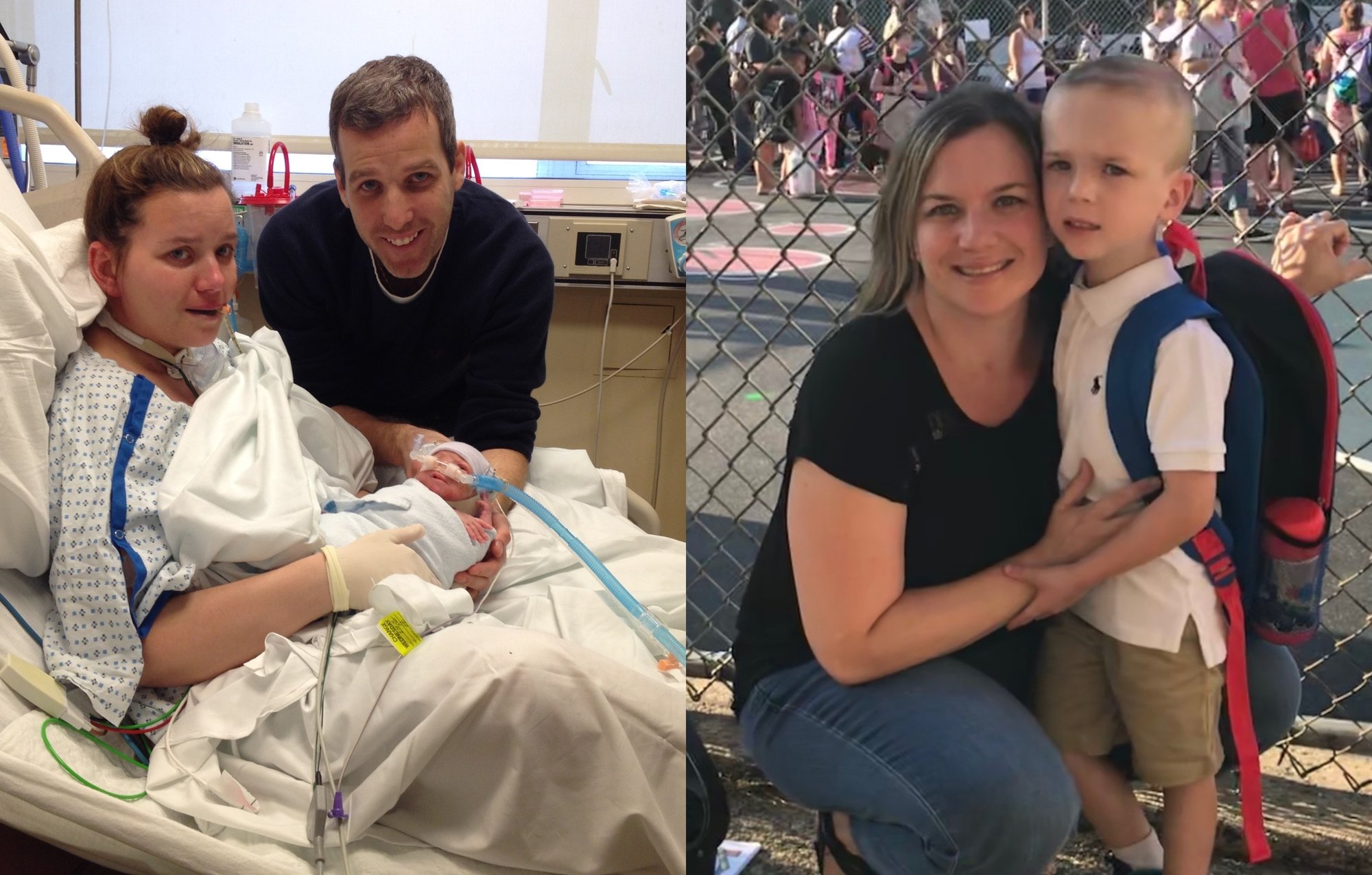
Every time Melissa Barvels looks in the mirror, she's reminded of the near-death experience that changed her world forever. There, gently dotting her neck, is what she calls her "necklace" of scars — a series of incisions doctors made several years ago while desperately trying to save her life. The mother of three from Staten Island, New York, is alive and well today, but in 2013, she was 25 weeks pregnant and suddenly on the brink of death after contracting a deadly strain of the flu virus. And each year, as flu season once again approaches, she shares her story with anyone who will listen, in hopes of educating others about something she so desperately wishes she'd known.
Melissa was nearing the end of her second trimester in December 2013 and looking forward to Christmas when she fell gravely ill.
She was anxiously awaiting another boy — her second child and the first with her husband Scott — when suddenly one morning, she could barely get out of bed. Chilled to the bone and running a high fever, she called her OB and spoke with the nurse practitioner, who told her to rest and "sweat it out." But after two days of no improvements, her OB urged her to get to a hospital and fast.
Her first stop was a hospital in Staten Island, where doctors diagnosed her with pneumonia and told her she had to remain hospitalized. She says her mind immediately raced, as she frantically worried she wouldn't be home in time for Christmas with her husband and her 5-year-old, Christopher.
But it's here that her memory stopped.
Melissa was placed into a medically induced coma December 23 by doctors who feared not just for her life but also for her unborn baby.
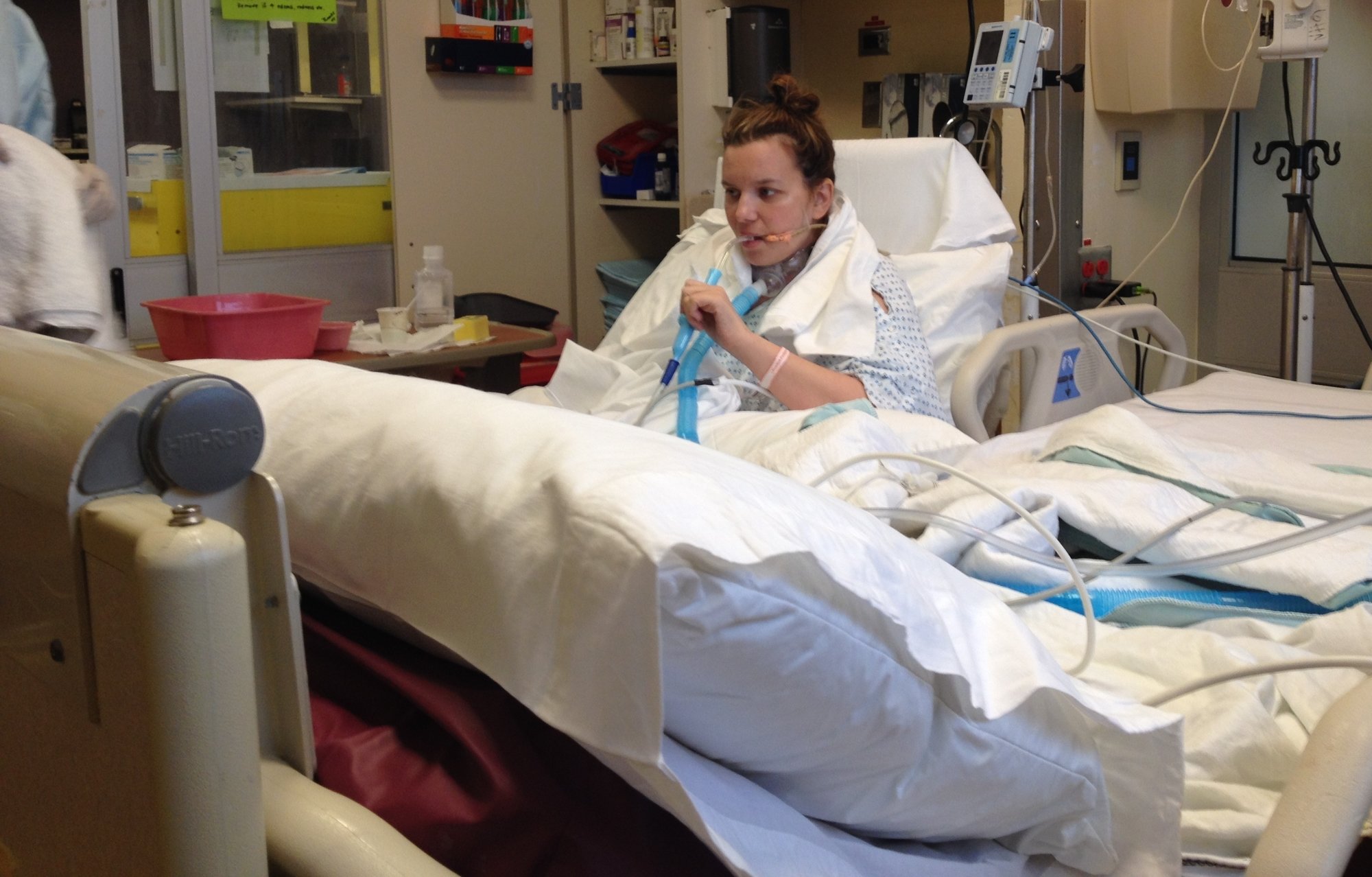
When she woke, Christmas had came and gone. So had New Year's. And when she looked down, she was no longer pregnant.
It was now February 2014, and Melissa had been asleep for 45 days straight. The baby boy she'd been eagerly expecting had been born via C-section on January 8, while she was still deep in a coma. And although her husband was there to witness the birth, he didn't have his wife to share it with. In fact, the couple hadn't even settled on a name yet — so he went with the only one they'd discussed: Scott.
"When I woke up, I somehow knew that the baby had been born," Melissa tells CafeMom. "I’m not sure how though or for how long. I don’t think I put much thought into just knowing at the time. Even now, I still have no idea. I wonder how long I knew. Was it the day he was born? Was it from my family telling me every day (or so I’m told they did) that the baby was okay?"
Melissa says the memory of missing out on her son's arrival still pains her to this day.
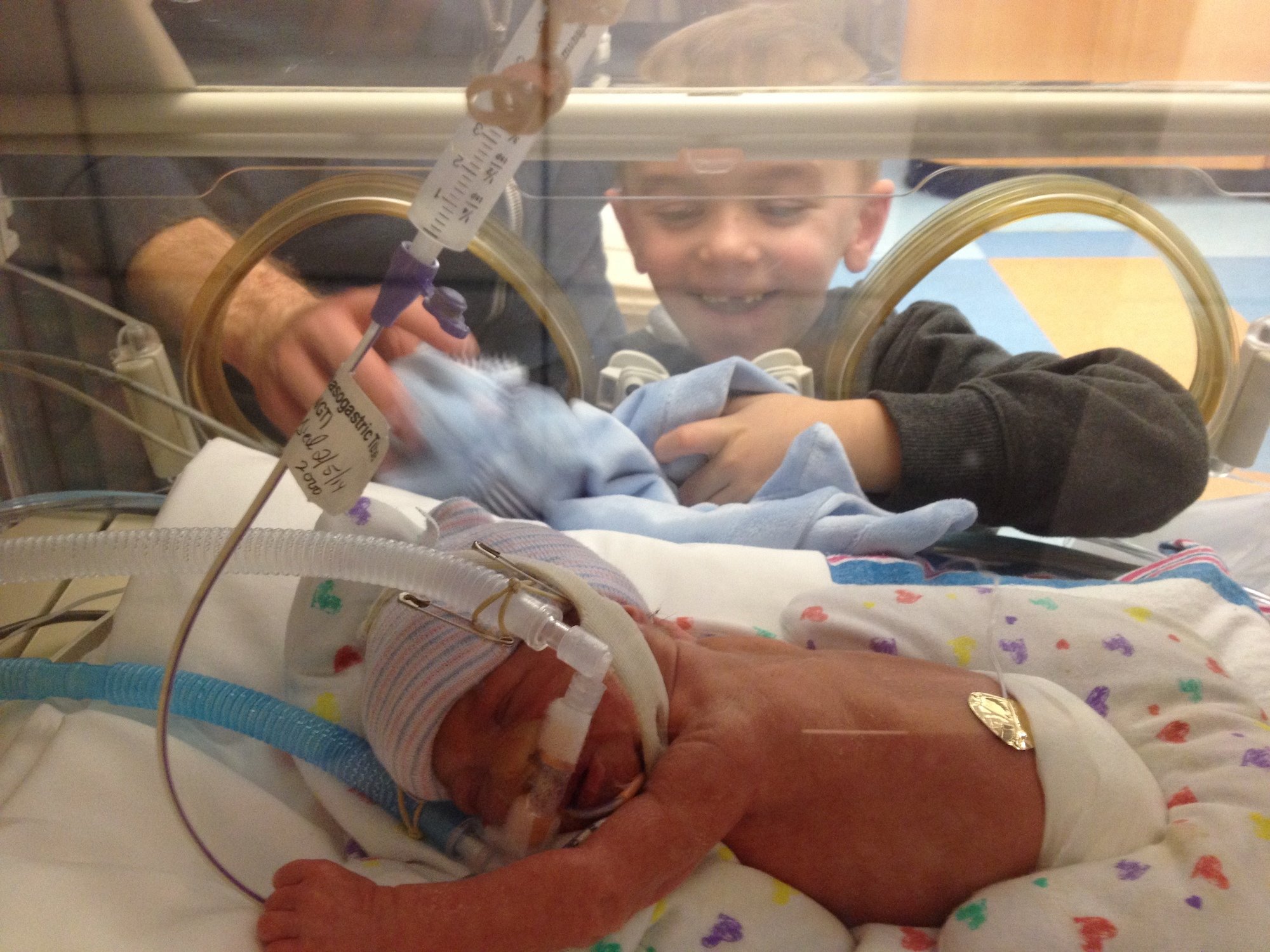
"I still get emotional when I think about not being part of Scotty’s birth," she shares. "I don’t know if that’s something I’ll ever get over. Especially on January 8."
When she awoke from her coma, Melissa says she began to learn bits and pieces of what had happened. Scotty had been born at just 28 weeks weighing 2 lbs., 10 oz., and was recovering in the NICU. He had arrived just two weeks after she'd been transferred to New York-Presbyterian/Columbia Hospital, where she was sedated and hooked up to a machine called an ECMO, or extracorporeal membrane oxygenation. The ECMO acts as an artificial lung, giving real ones a chance to heal — and in those 45 days, it helped save her life.
It was also there, at New York-Presbyterian, that doctors finally discovered the true cause of her illness: She'd contracted the H1N1 swine flu, which had then turned into double pneumonia and eventually acute respiratory distress syndrome. Though she didn't know it at the time, the deadly strain of the virus had returned that winter with particularly devastating results, causing a spike in deaths among the young, elderly, and immunocompromised.
As it turned out, she was one of the lucky ones.
Just a few short hours after Melissa woke up, doctors wheeled Scotty into the room so mom and baby could finally meet.
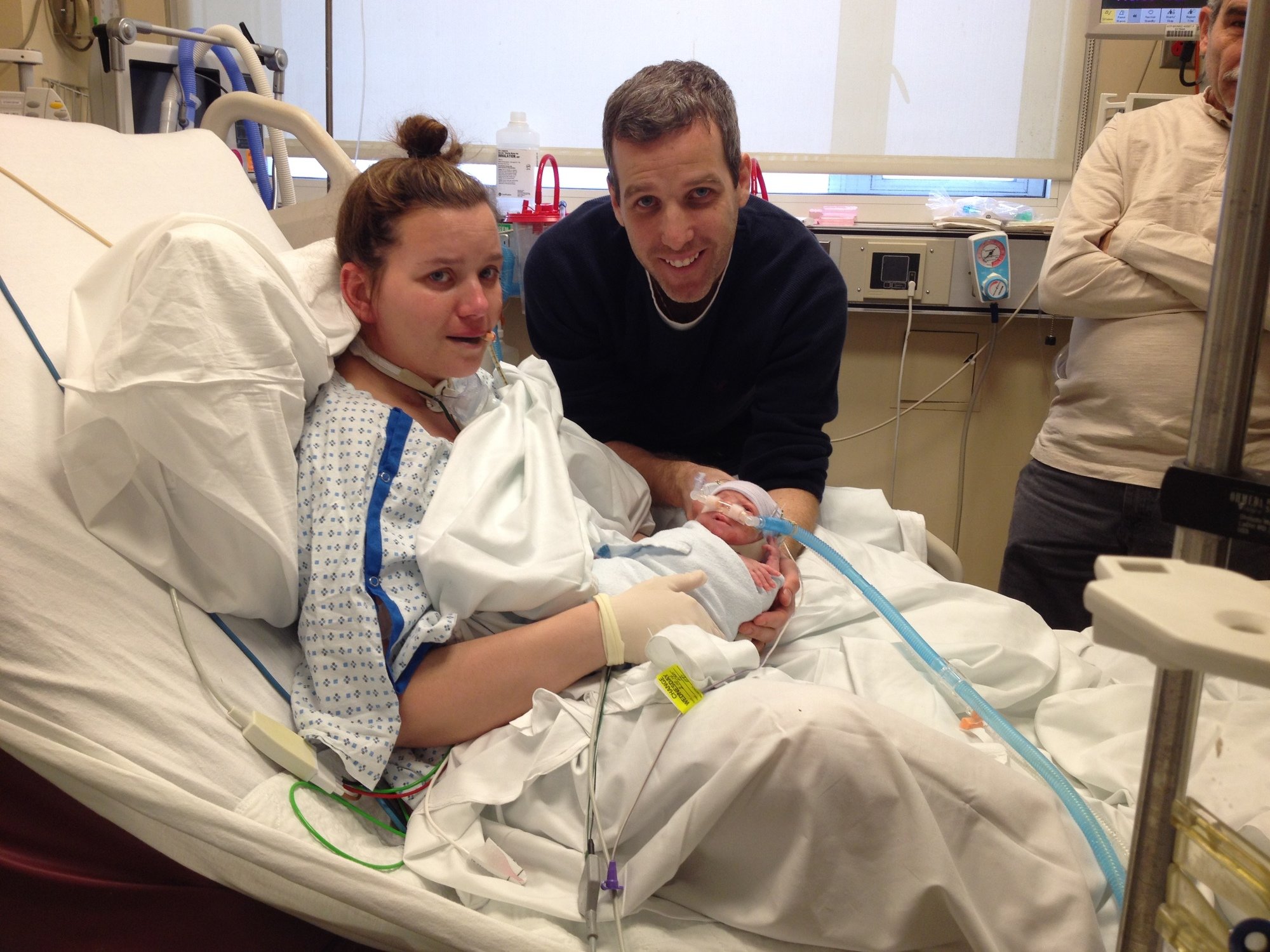
"Scott was so excited for me to meet him," she says, looking back. "I think everyone was."
Getting him there would prove to be a feat in and of itself, though — Scotty was being cared for in the NICU ward of New York-Presbyterian Morgan Stanley Children’s Hospital across the street, and had to be transported by his own team of medical personnel to where his mother was staying.
Barely able to move, Melissa can still remember how she felt as Scotty was placed in her arms for the very first time.
"It was very overwhelming," she tells CafeMom. "There was so much for me to take in of what had happened. … It was amazing that everyone was able to do this for me, but it was so difficult for me at the time to take it all in. There were so many people staring at us and taking pictures. I just couldn’t wait for it to end."
But as the days began to pass and she continued to make progress, Melissa says those overwhelming moments soon subsided, and it wasn’t long before she was making her own trips across the street to see Scotty — pushed in a wheelchair by her husband or her mom.
"I loved every minute of that time," she says.
Still, Melissa is well aware that all of the trauma she and Scotty lived through could have been prevented, if only she'd gotten the flu shot.
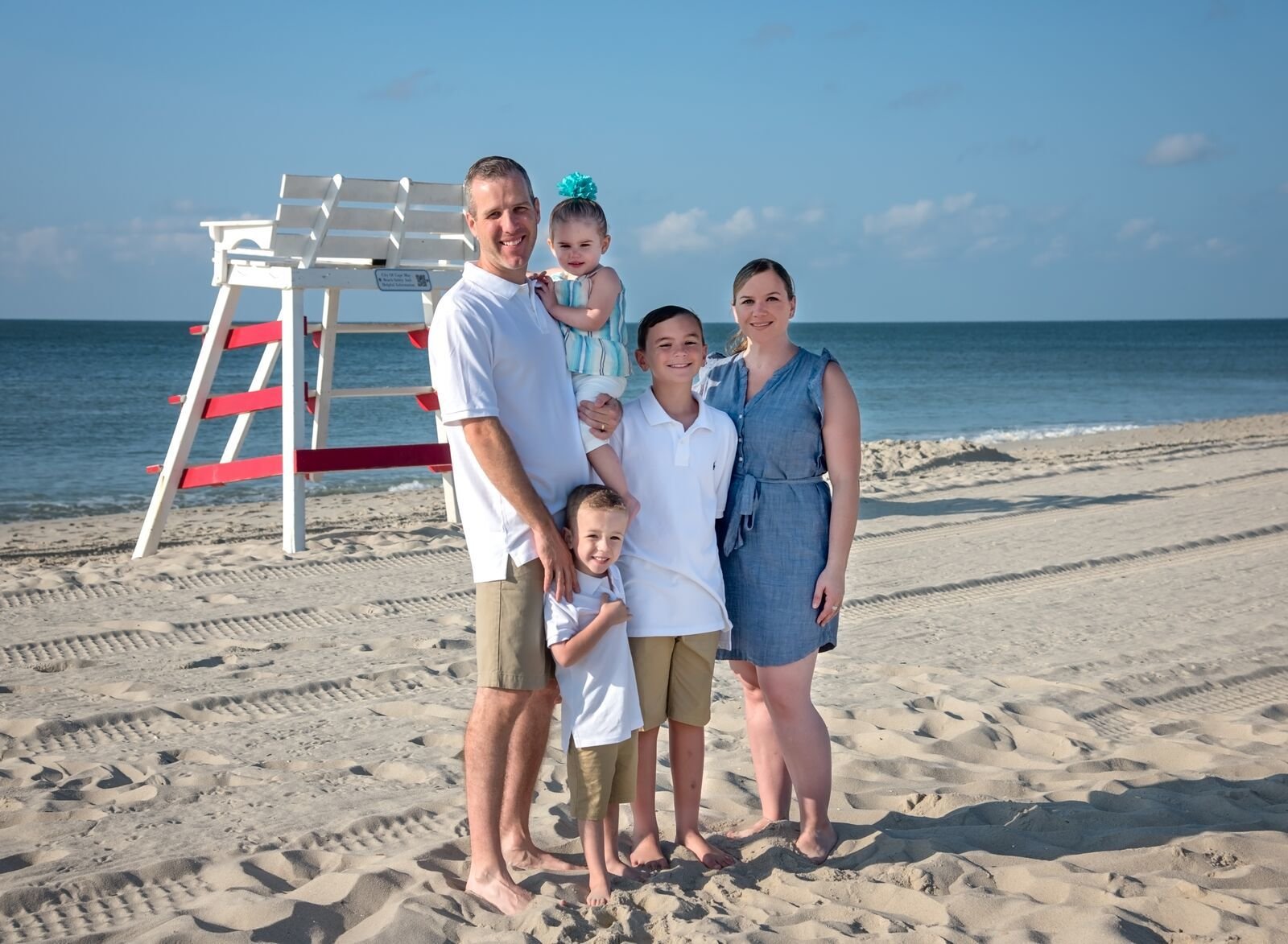
"Had I known how bad the flu could actually be, I would have gotten the shot," she says. But instead, she skipped it — unaware of just how many risks there were.
She's far from alone.
According to an eye-opening new report by the Centers for Disease Control and Prevention, an alarming number of pregnant women are opting out of the flu shot. In fact, of the nearly nearly 2,100 women surveyed — who ranged in age from 18 to 49 and were pregnant between August 2018 and April 2019 — only 54 percent reported getting the shot last year.
Their reasons range widely from not believing the vaccine is actually effective to not being informed of its importance by their doctors. The most common reason by far for skipping the vaccine, however, was the fear that it could somehow harm their baby, despite the strong evidence that it's both safe and effective.
The report also noted another troubling fact many people don't realize: Pregnant women can actually experience the flu much more severely than others, and have more than double the risk of being hospitalized if they contract it.
Today, Melissa is happy to report that Scotty is a healthy and happy 5-year-old -- and she has become an unwavering advocate of the flu shot.
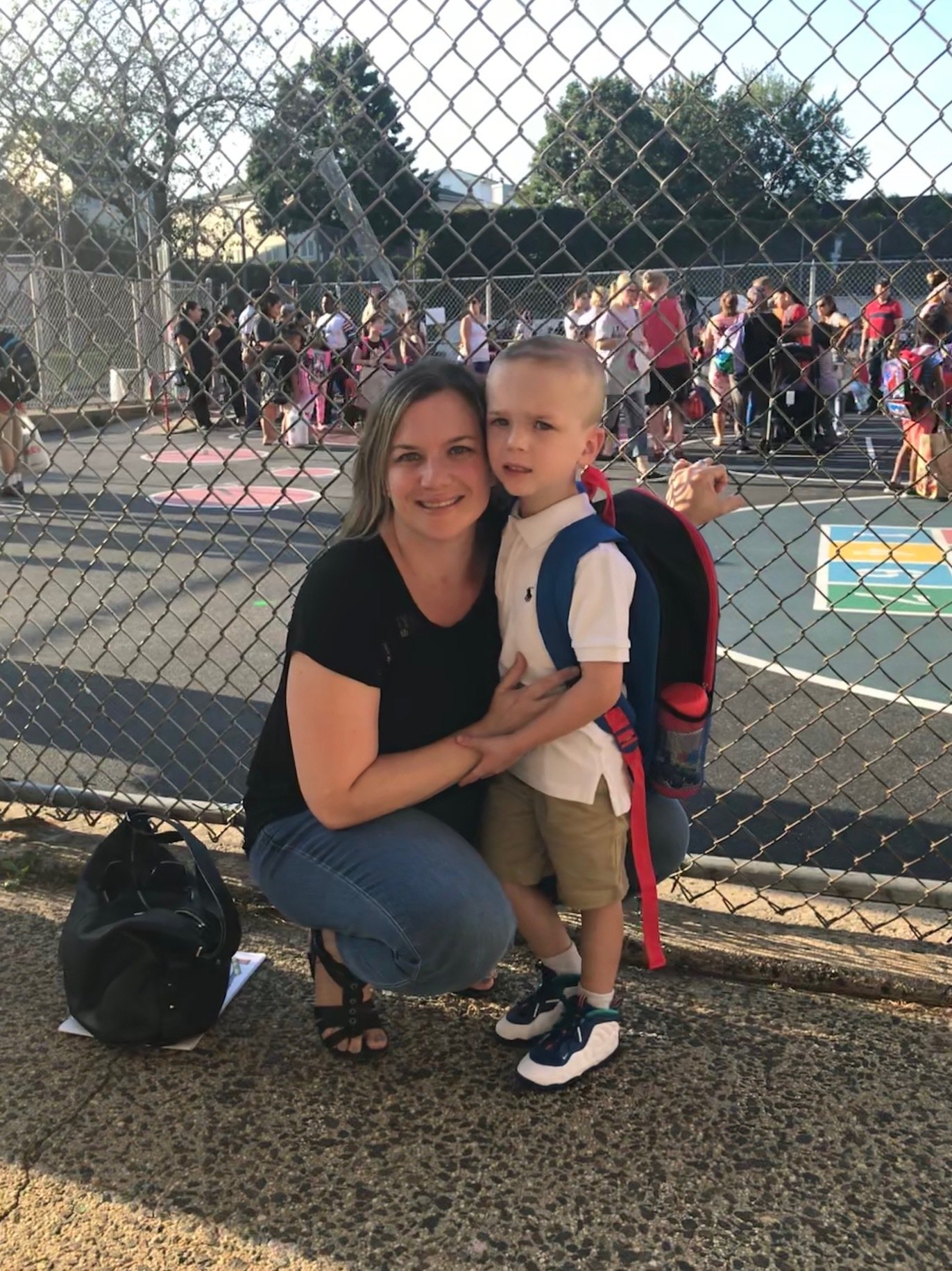
"I hope to spare other families from the heartache that mine went through," she says.
Still, as vaccine hesitancy continues to grow — not just in the US, but throughout the world — she's aware that speaking her truth can also lead to some fiery debates.
"Most times people are very supportive, but there are occasions when my story is posted online that I have received backlash from anti-vaxxers," she says. "Someone once posted that my story was fake and that I was paid by pharmaceutical company. I laughed and said I wish that were true, because these last few years have been no picnic!"
Maintaining a sense of humor has certainly helped keep things in perspective, despite the trauma that Melissa endured. But so has the passage of time, which has brought with it not only her recovery and Scotty's, but also the birth of a new daughter, Madison, who joined the family in 2016.
"I think living through such a traumatic event makes me appreciate things in life that much more," she says.




